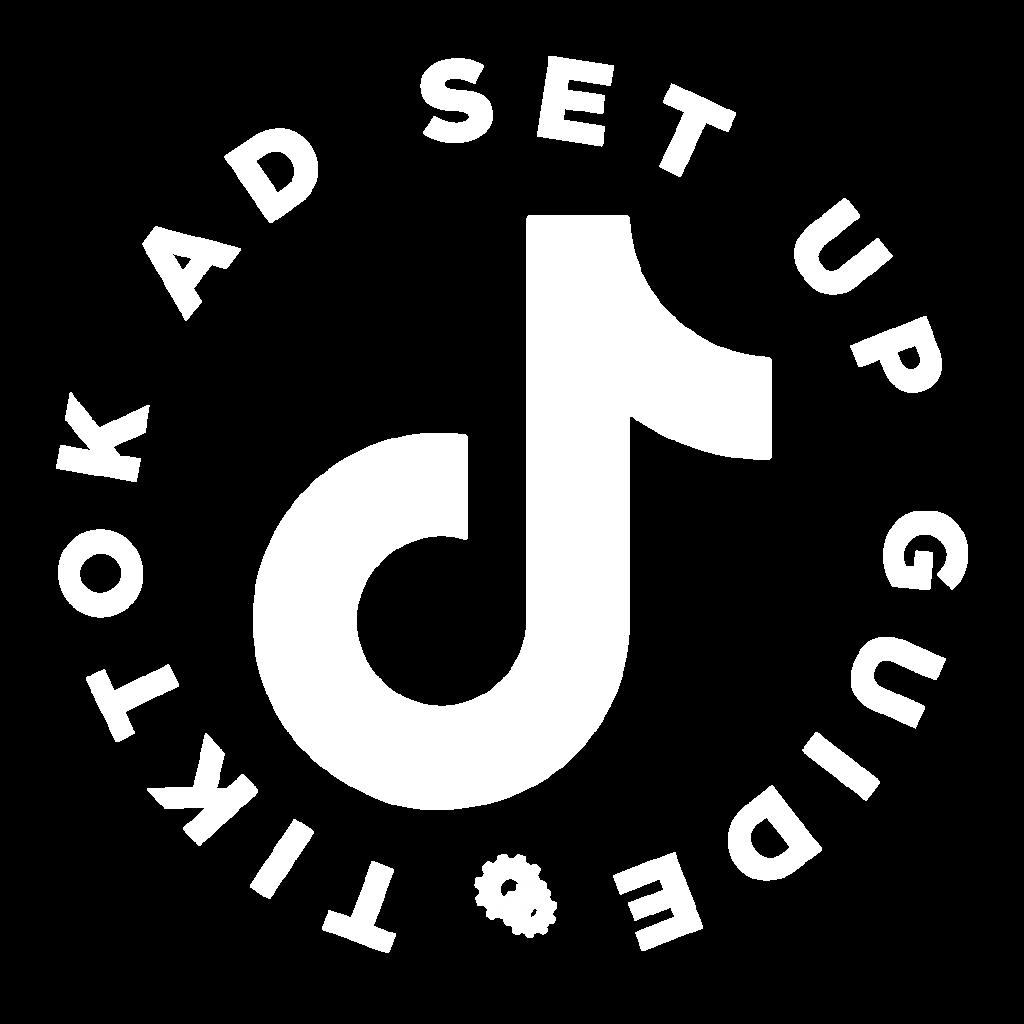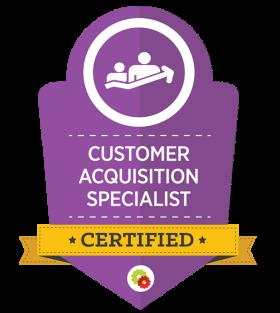
Ad fraud is showing no signs of slowing down. In fact, the latest data indicates that it will cost businesses a colossal €120 billion by 2023. But even more worrying is that fraudsters’ tactics are becoming so sophisticated that even big-name companies such as Uber, Procter & Gamble, and Verizon have been victims of ad fraud in recent years.
So what does this mean for the rest of the industry? The answer is simple: every ad company, no matter their size or budget is just as at risk as the big guns – if not more.
In this article, I summarize some of the biggest and most shocking cases of ad fraud we’ve witnessed over recent years and notably, what vital lessons marketers and advertisers can learn from them to avoid wasting their own budgets.
The biggest ad fraud cases in recent years
From fake clicks and click flooding to bad bots and fake ad impressions, fraudsters have and will go to any lengths to siphon critical dollars from your ad budgets.
Let’s take a look at some of the most high-profile and harmful ad fraud cases of recent years that have impacted some of the most well-known brands around the world.
Methbot: $5 million a day lost through fake video views
In 2016, Aleksandr Zhukov, the self-proclaimed “King of Fraud”, and his group of fraudsters were discovered to have been making between $3 and $5 million a day by executing fake clicks on video advertisements.
Oft-cited as the biggest digital ad fraud operation ever uncovered, “Methbot” was a sophisticated botnet scheme that involved defrauding brands by enabling countless bots to watch 300 million video ads per day on over 6000 spoofed websites.

DOWNLOAD: The TikTok Ad Set Up Guide. Learn how to quickly create 16 TikTok ads in the least amount of time possible. Click Here
Due to the relatively high cost-per-mille (CPM) for video ads, Aleksandr and his group were able to steal millions of dollars a day by targeting high-value marketplaces. Some of the victims of the Methbot fraud ring include The New York Times, The New York Post, Comcast, and Nestle.
In late 2021, Aleksandr Zhukov was sentenced to 10 years in prison and ordered to pay over $3.8 million in restitution.
Uber: $100 million wasted in ad spend
In another high-profile case, transportation giant Uber filed a lawsuit against five ad networks in 2019 – Fetch, BidMotion, Taptica, YouAppi, and AdAction Interactive – and won.
Uber claimed that its ads were not converting, and ultimately discovered that roughly two-thirds of its ad budget ($100 million) wasn’t needed. This was on account of ad retargeting companies that were abusing the system by creating fraudulent traffic.
The extent of the ad fraud was discovered when the company cut $100 million in ad spend and saw no change in the number of rider app installs.
In 2020, Uber also won another lawsuit against Phunware Inc. when they discovered that the majority of Uber app installations that the company claimed to have delivered were produced by the act of click flooding.
Criteo: Claims sues competitor for allegedly running a damaging counterfeit click fraud scheme
In 2016, Criteo, a retargeting and display advertising network, claimed that competitor Steelhouse (now known as MNTM) ran a click fraud scheme against Criteo in a bid to damage the company’s reputation and to fraudulently take credit for user visits to retailers’ web pages.
Criteo filed a lawsuit claiming that due to Steelhouse’s alleged actions — the use of bots and other automated methods to generate fake clicks on shoe retailer TOMS’ ads — Criteo ultimately lost TOMS as a client. Criteo has accused Steelhouse of carrying out this type of ad fraud in a bid to prove that Steelhouse provided a more effective service than its own.
Twitter: Elon Musk claims that the platform hosts a high number of inauthentic accounts
In one of the biggest and most tangled tech deals in recent history, the Elon Musk and Twitter saga doesn’t end with Twitter taking Musk to court for backing out of an agreement to buy the social media giant for $44 billion.
In yet another twist, Musk has also claimed that Twitter hid the real number of bots and fake accounts on its platform. He has also accused the company of fraud by alleging that these accounts make up around 10% of Twitter’s daily active users who see ads, essentially meaning that 65 million of Twitter’s 229 million daily active users are not seeing them at all.

The Industry’s Most Comprehensive Paid Traffic Certification For The Post-Privacy World
Overcome iOS updates, crumbling campaigns, and surging ad costs by mastering the most cutting-edge media buying strategies from the top traffic experts in the game today.
6 Lessons marketers can learn from these high-profile ad fraud cases
All of these cases demonstrate that ad fraud is a pervasive and ubiquitous practice that has incredibly damaging and long-lasting effects on even the most well-known brands around the world.
The bottom line is this: Marketers and advertisers can no longer afford to ignore ad fraud if they’re serious about reaching their goals and objectives. Here are some of the most important lessons and takeaways from these high-profile cases.
- No one is safe from ad fraud
Everyone — from small businesses to large corporations like Uber — is affected by ad fraud. Plus, fraudsters have no qualms over location: no matter where in the world you operate, you are susceptible to the consequences of ad fraud.
- Ad fraud is incredibly hard to detect using manual methods
Fraudsters use a huge variety of sneaky techniques and channels to scam and defraud advertisers, which means ad fraud is incredibly difficult to detect manually. This is especially true if organizations don’t have the right suggestions and individuals dedicated to tracking and monitoring the presence of ad fraud.
Even worse, when organizations do have teams in place monitoring ad fraud, they are rarely experts, and cannot properly pore through the sheer amount of data that each campaign produces to accurately pinpoint it.
- Ad fraud wastes your budget, distorts your data, and prevents you from reaching your goals
Ad fraud drains your budget significantly, which is a huge burden for any company. However, there are also other ways it impacts your ability to deliver results.
For example, fake clicks and click bots lead to skewed analytics, which means that when you assess advertising channels and campaigns based on the traffic and engagement they receive, you’re actually relying on flawed data to make future strategic decisions.
Finally – and as a result of stolen budgets and a reliance on flawed data – your ability to reach your goals is highly compromised.
- You’re likely being affected by ad fraud already, even if you don’t know it yet
As seen in many of these cases, massive amounts of damage were caused because the brands weren’t aware that they were being targeted by fraudsters. Plus, due to the lack of awareness surrounding ad fraud in general, it’s highly likely that you’re being affected by ad fraud already.
- You have options to fight the effects of ad fraud
Luckily, as demonstrated by these cases, there are some options available to counteract the impact and losses caused by ad fraud, such as requesting a refund or even making a case to sue. In such cases, ad fraud detection solutions are extremely useful to uncover ad fraud and gather evidence.
- But the best option is to prevent ad fraud from the get-go
The best ad fraud protection is ad fraud prevention. The only surefire way to stop fraudsters from employing sophisticated fraud schemes and attacking your campaigns is by implementing equally sophisticated solutions. Anti-ad fraud software solutions that use machine learning and artificial intelligence help you keep fraud at bay, enabling you to focus on what matters: optimizing your campaigns and hitting your goals.

The post The Biggest Ad Fraud Cases and What We Can Learn From Them appeared first on DigitalMarketer.
Frequently Asked Questions
What makes an entrepreneur a success?
There are two types, those who make their money and those whose time is theirs.
They approach their business differently. That is what makes them different. Money-makers focus on making more while time-makers focus on making more.
Those who make money are driven by the desire for financial freedom. Their goal is becoming and staying rich.
They are motivated by fear and greed. They care little about the long term because they know that they will be set for life once they reach their goals.
This type is often called a hustler. They place emphasis on the bottom line, and they find ways to increase income without regard for quality.
On the flip side some make time. These entrepreneurs are driven to succeed by their passion. They are passionate about creating something meaningful that lasts forever.
They are motivated by altruism. They want to do great things. They care about creating products and services that matter.
These people are sometimes called dreamers. They are driven and inspired by vision. They understand that success takes hard work, perseverance, and dedication.
The most important trait of these entrepreneurs is their creativity. They are constantly seeking out opportunities that haven't been done before.
They are attracted to the unknown. They are open to spending hours researching new topics. They love to learn new things and are open to new ideas.
It is also why they are adaptable to changing situations. They don't mind getting dirty or doing whatever it takes to win. They don't like mediocrity.
Which type of entrepreneur is it? Is it a burning desire to make a living or a burning desire to find meaning?
Congratulations if you answered yes both questions. You are a successful entrepreneur.
I've had the pleasure of meeting many successful entrepreneurs over my career and one thing struck me was their passion.
The only thing that defines successful entrepreneurs is their financial wealth. The impact defines them they leave behind.
Steve Jobs, for example, was well-known for his charitable efforts, but he wasn't wealthy. He didn't even own a house until he was in his mid-40s.
His ability and creativity to create products that transformed the world made him wealthy. This is what defines him.
It is not about accumulating wealth. It's not to amass power or build empires.
Your job is to establish relationships with customers, partners, and other people. To build trust. To support others.
To have a positive effect. It's your legacy. It's not your bank account.
We'd love to talk with you if we can help you build a lasting legacy.
Social Media University shows you how to create passive income online. How to market your business and make it grow automatically.
What motivates entrepreneurs?
Passion drives us. However, we are driven by passion and a strong desire to create meaningful things that make a real difference. To make a difference for ourselves and our loved ones.
To give back. To help others. To leave behind a legacy.
We do it because we love what we do. Because we feel compelled by God to live our lives fully and succeed in things that matter.
We are driven primarily by a sense that purpose and mission is important. It cannot be achieved solely through money.
Find a way for business to be enjoyable. This is where entrepreneurship becomes more than just a job; it is a lifestyle.
Entrepreneur success is what I am passionately interested in. My goal in helping entrepreneurs achieve financial freedom and make a lasting difference in the world is my goal.
It's the only way to create value. I am living proof of this. The sharing of your knowledge and expertise to the rest.
It's not enough to build a great product or service. Understanding your customers and their needs is key. What they are looking for.
Doing so will help you to always improve your offering. And therefore, you'll always provide more value.
Offering more value will result in more customers. You will also sell more products and more services if you have more customers. Selling more products and services will result in more revenue. You will eventually be financially independent if you have more revenue.
You see, money doesn't always mean everything. It's a means to an ends. It's not the goal in and of itself.
To truly live a rich, fulfilling life, you can't focus on just money. Focusing on positive change is also important. Contributing. Leaving a legacy. Create something unique. Unique. A unique thing that gives meaning to your and others lives.
Entrepreneurship requires risk-taking. But it doesn't mean having any rules. It is about being flexible. Adapting. Adjusting. Improving.
You won't fail if you are true to yourself, your values and your integrity.
Entrepreneurship is a calling. A vocation. An opportunity to contribute. To create wealth. To shape history.
When you embrace all of these things, you will be the best version of yourself.
You will be unstoppable.
How to motivate yourself as an entrepreneurial leader?
The best way to motivate yourself is to find someone else who is motivated to do what you are trying to do. Ask someone who is working hard for his goals about how they did it.
Ask for advice, listen, learn and most importantly follow it. Follow the example of someone who is successful.
To be that person, do everything you can. Learn from them. Take notes. Follow their example.
But above all keep pushing forward. Keep moving. Never stop learning. Never give up.
Never listen to anyone telling you that you're not capable. Never let anyone tell or suggest that there's no path.
You might fail but that doesn’t mean you’re a failure. Failure can make you stronger. To learn more. To push harder.
Failure is just another step along the road to success.
Get started today! Start today to move closer towards your dreams.
Are you still waiting?
What are some of the benefits of an entrepreneurial mindset
Being an entrepreneur has many benefits. The first is your ability to be self-reliant. You stop relying on other people.
You are free to pursue your goals and become independent. This helps you establish relationships with other entrepreneurs as you share common interests and challenges.
You gain confidence. Entrepreneurs learn constantly. This gives you the ability and flexibility to change quickly. You won't be stuck in a rut if you think outside the box.
Our freedom to create our businesses is free from the restrictions imposed by society. We have the freedom to decide what and how to live our lives.
We can choose either to follow the crowds or go against them. We have the choice to be successful or unsuccessful. You can choose to win or fail.
The freedom you have is exhilarating. However, it also comes with some responsibility. This is because you are accountable for everything happening within your company once you have taken on this role.
So if you want to succeed, you must learn to manage risk. Don't be afraid trying new things. Your goal will be achieved if you are open to learning from your mistakes.
Keep these points in mind as you begin your journey.
Remember:
- Entrepreneurship is a lifestyle choice.
- When you run your own business, you're the boss.
- Avoid following the latest trends.
- You don't measure success in money. It is in freedom.
- It is important to find a balance between your personal and professional lives.
- Set clear expectations.
- Be honest with your team.
- It is important to remember that if something is to happen, it must be done.
What is the importance of motivation for entrepreneurs?
Motivation is what keeps us moving forward even when we feel discouraged or lost. Motivation gives us the courage to face our fears, and makes decisions that may seem impossible or risky.
Motivation is also the driving force behind success. Motivation is a driving force behind success. If we lack it, we can become laziness, unmotivated and unproductive, which ultimately leads to failure.
Motivation is the key to unlocking potential. This means finding a way to stay motivated throughout the day.
It is like a muscle. The more you work it, the stronger it will become. If you don't exercise it, it begins to atrophy and weaken.
Some of the most successful entrepreneurs are self-motivated. They set goals and plan how they will be achieved. Then, they follow through.
But there are times when you may need help staying motivated. These are three easy steps that can help you stay motivated.
Step 1) Get inspired. Look for someone who inspires you. Someone who is already achieving the things you dream of.
Step 2. Set small goals. Step 2) Set small goals. Keep your eyes on the next step, not the final outcome. By breaking big goals down into smaller ones, you'll be able to reach them faster.
Step 3) Reward yourself. Give yourself rewards when you've completed your goals. Reward doesn't necessarily have to be tangible; it could be simply taking the time to do something enjoyable.
Motivation is a choice. Choose to be happy, choose to be successful, choose to live life abundantly.
Start today if you are ready to make a change in your life. The first step to making a change is to choose to do so. Next, you must take action. Then, take action and start living your dreams.
What is your biggest motivation in life and why?
Are you curious about my top motivations in life? Well, let me tell you. To help others feel better about themselves is my greatest motivation. To help them see that they are extraordinary, because they are. They are worthy love, for they are.
They deserve happiness because they are.
It is important to feel great about yourself. Nothing. I'm willing to do whatever it takes for our world to be better.
We feel better about ourselves and are more compassionate towards others when we feel that way. It's a great thing to stop judging others based on superficiality. Instead, we start to see the person inside.
Showing someone that you already have everything you need is the best way for them to be motivated.
Although they may not be aware of it, that is why they have been struggling with something so much. They knew deep down that they could heal themselves.
They just needed the right environment, support system and mindset. This was something they somehow lost sight.
Why did they lose sight? Because they were too focused on figuring out the source of the problem. They were too busy trying to fix the problem, when they realized that they had all of the tools needed to solve it.
But they forgot that the real reason they weren't able to solve it was because they didn't even know they had the answer.
This is why I remind you that you can create something entirely new. It is easy to tap into your inner genius.
All will be well once you do that. You will be amazed at the ease it takes to fulfill your dreams.
You see, I believe that every single human being has access to their own unique superpower.
It is up to us to master its use.
Statistics
- "Most of the time when people ask me about motivation, 80 percent of the time, I attribute it to gratitude. (entrepreneur.com)
- "If you improve by just 1% every single day, in several months, you will have improved by 100%. (carolroth.com)
- “If you look to lead, invest at least 40% of your time managing yourself – your ethics, character, principles, purpose, motivation, and conduct. (americanexpress.com)
- Invest at least 30% managing those with authority over you and 15% managing your peers.” (americanexpress.com)
- “Effective communication is 20% what you know and 80% how you feel about what you know. (americanexpress.com)
External Links
businessinsider.com
- 101 Best Inspirational Quotes For Entrepreneurs
- SpaceX employees face almost impossible goals from Elon Musk
cnbc.com
- This is Jeff Bezos’s inspirational quote he keeps on his fridge
- Billionaire Richard Branson: These are my top 10 tips for success
oberlo.com
inc.com
How To
How do you keep your motivation up when starting a business.
If you want to make money online you need to focus on building an income stream. This means developing a way to generate consistent revenue from your website.
You can do this by creating products that solve customers' problems. But how do you make these products? This is where the real excitement begins.
There are two ways to approach product creation. The traditional approach to product creation is to first come up with an idea and then work hard on it.
But there's another choice. It's possible to simply ask, "What problem are I trying solve?" Then, you can search for a solution.
This is called the "finding-a solution" method. You are likely to uncover a problem at another site using the find-aproblem approach.
Once you have determined the problem, then you must decide if it is worth solving. These are the three most important questions to ask:
- Does it make sense?
- What can you do to fix it?
- Will it pay?
You have the foundation for a product that is successful if you can answer all three questions. You now need to decide how to package it.
Businesses that lack a plan for generating regular revenue are most likely to fail. It is easier to continue working after you have exhausted all your ideas.
You might also discover that you have more ideas to accomplish than time. This is where you can either delegate tasks to your team members or hire freelancers.
As long as you continue to grow your income stream, you'll be able to stay motivated.
Keep in mind: If you are determined to put in the effort, you can achieve anything. So why wait? Start today!






